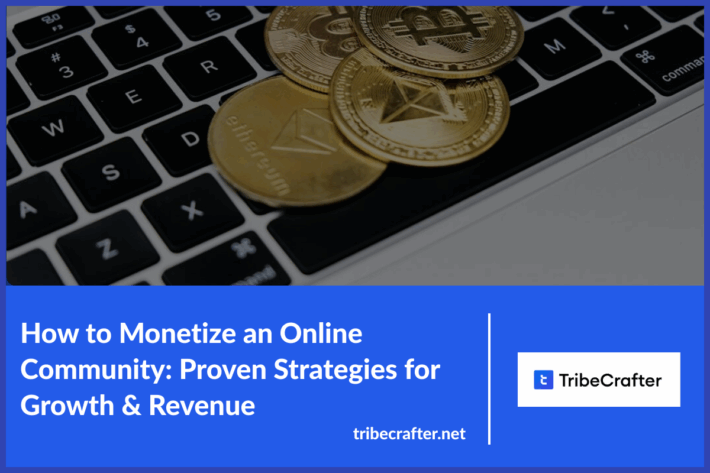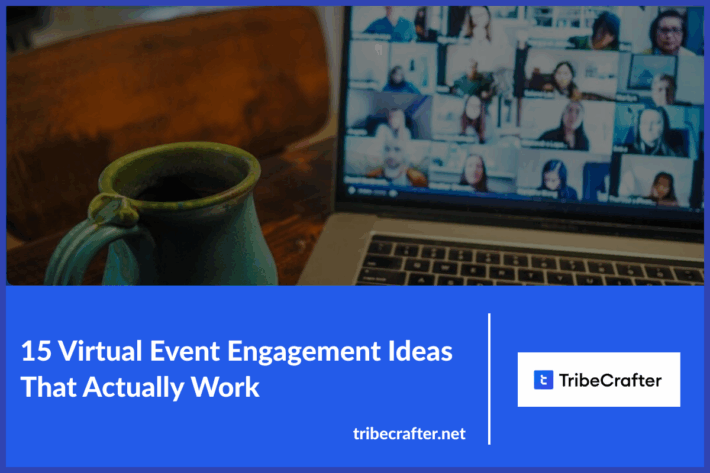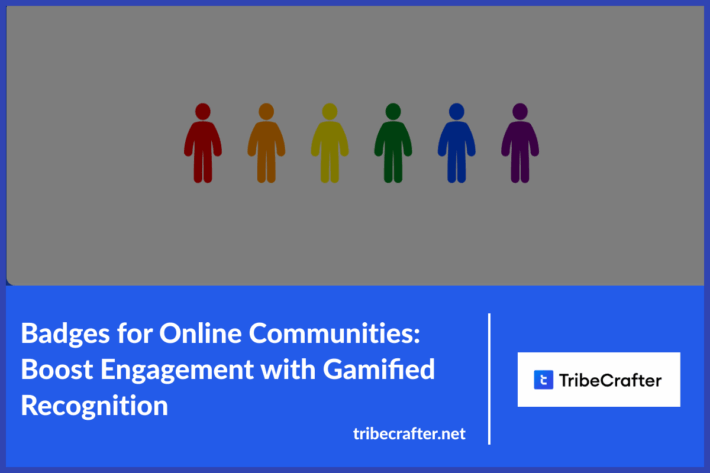⚠️ 9 Major Disadvantages of Facebook Groups You Should Know
Facebook group is the first thought that comes to one’s mind, when thinking of starting an online community. Facebook is free and has millions of users, so it naturally gets tempting to create an online community there. However, in reality Facebook groups do have many limitations and disadvantages which may interrupt effective community management and thus impacting your business negatively.
Moreover, the disadvantages of Facebook groups might let the existing community owners to delete their Facebook groups.
Disadvantages of Facebook Groups
This article will summarize some of the disadvantages of Facebook groups which make it not an ideal platform to host an online community.
1. Lack of Control
When you create a Facebook group, you do not own the platform. This means Facebook can change policies or shut down groups without notice, leaving administrators powerless to protect their communities.
Moreover, if your account gets hacked, you can do nothing to secure your Facebook group.
The fact that you do not have full authority over your target audience while using a Facebook group is another crucial consideration.
Moreover, you don’t know much about the people in your group, and the only method to get in touch with them is through your Facebook group. For instance, you can’t send them newsletters, updates, or promotional emails using their email address.
The article from Cypress North discusses how businesses have limited control over Facebook Groups, highlighting that “Facebook Groups are extremely limited. You can’t expand offerings, build new features and fully support your audience’s needs with Groups.”
2. Data Privacy Concerns with Facebook Groups
Facebook group admins have limited control over member data, and users may be reluctant to share personal information due to Facebook’s history of privacy scandals.
The 2020 Facebook ad boycotts, where over 1,000 companies participated due to concerns over content moderation and hate speech, underscore the platform’s challenges in managing user-generated content
Moreover, Facebook group members may not know who can access their data and how it can be used.
Members of your organization may become distrustful of one another as a result of privacy issues, which could impact participation and member retention.
Furthermore, privacy violations can harm the reputation of your company or brand and result in legal problems. In other words, members of your group believe that their confidentiality is not being maintained.
The potential of your virtual community may be limited if people are reluctant to join in conversations or divulge personal information.
3. Community Engagement Challenges
Despite a large user base, many Facebook groups experience low engagement. The platform’s algorithm often prevents all members from seeing every post, which can lead to important discussions being overlooked.
Because the algorithm prefers content that receives a lot of reactions, comments, and shares, it might not be seen by many members if your group isn’t producing this kind of interaction.
Additionally, Facebook’s algorithm can give preference to friends and family content over group content, which would limit the reach of your group.
Facebook is designed to keep users engaged with a variety of content, leading to distractions from notifications and ads that can detract from group discussions.
4. Organizational Limitations
Comments in Facebook groups can become disjointed and chaotic, making it difficult for members to follow discussions or extract meaningful insights.
The anonymity of online interactions can also cause negative behavior, including bullying and harassment. Group dynamics may become toxic if not actively managed by administrators.
5. Not Search Engine Friendly
Facebook Groups do not appear in search engine results, which limits discoverability. This makes it harder for potential new members to find and join the group based on relevant interests.
6. The Distractions
Imagine someone is currently on your Facebook group and a notification from his friend pops us where he checked-in to a famous restaurant. Your group member might open the notification and from there, he goes to that restaurant page to check the customer reviews and so on. Thus, your group went into the background in no time due to a single notification.
Facebook’s goal is to keep users interested with a wide range of material, yet notifications and advertisements can cause distractions and take time away from group discussions.
Distractions and advertisements can degrade the worth of the material produced by your organization, which will lower member retention and engagement. Members can be less inclined to contribute to debates or offer their content if they feel irritated or frustrated by the interruptions
Furthermore, the adverts can be viewed as spam or irrelevant if they don’t align with the group’s goals, which would harm the group’s reputation.
7. Limited Moderation Tools
Facebook group admins have basic moderation options, which may not suffice for maintaining a respectful and engaging environment. This limitation can make it hard to enforce rules or manage spam effectively.
Moreover, in-depth discussions on highly specialized technical topics that are not appropriate for a public forum can be found in threads. Facebook could never match the assistance tools that have been developed by other specialized online community forums.
8. Monetization Difficulties
While some monetization features exist for Facebook groups, such as paid events, they are not robust enough for creators looking to build sustainable revenue streams from their communities.
Online community creators can make money by selling items, providing unique content, and charging for subscriptions. But making money from a Facebook group might be difficult.
Group members can be redirected to an external payment page using external monetization technologies, although this method might be difficult and lower conversion rates, which complicates payment and subscription management.
For community owners who are looking for better monetization options, there are certain dedicated online community platforms. One such platform is TribeCrafter where you can offer community access for a monthly or annual subscription charges. This is a great alternative for creators who want to make money from their online community.
9. Lack of Branding
If you are a business owner, the appropriate branding of your group is crucial. However, Facebook does not offer customized branding options for your groups. This means that you can add your brand’s logo on profile/cover picture and your group still looks like any other Facebook group.
Moreover, due to the standardized interface, members may not feel a strong connection to the group. The inability to tailor the user interface or features limits the potential for creating a branded space that resonates with members.
Why membership sites are better than Facebook groups
A more tailored and targeted community experience is possible with membership sites, which provide more control, branding options, and income opportunities than Facebook groups. The following explains why Facebook groups are frequently outperformed by membership sites:
1. An effective platform for businesses
You may charge for memberships, create packages, sell in various ways, and quickly determine what is and isn’t working with a platform that enables you to manage a community business. On the other hand, you can’t establish a true community business on Facebook.
2. Build your own brand
Unlike Facebook, when you create a private a social network, you are able to build your brand. You can even get your own branded applications on some platforms. A membership site gives you complete authority over design, branding, content delivery, and overall user experience.
3. Data and analytics
By giving you access to data and analytics, membership sites help you better understand your audience and enhance your content and community involvement.
4. Focused communities
Facebook communities can be more generalized and open to distractions, whereas membership sites offer a more targeted community experience that is catered to your unique requirements and objectives.
5. No more data privacy concerns
Data Privacy: Since a membership site does not rely on a third-party platform, you have greater control over members data and privacy.
Take Control of Your Online Community with TribeCrafter
Relying on Facebook Groups means sacrificing control, engagement, and monetization potential. Why settle for a platform where you don’t own your data or dictate how your community thrives? With TribeCrafter, you get a fully customizable, distraction-free, and powerful community-building platform designed for businesses like yours.
- Own your audience – No algorithms deciding your reach.
- Monetize your way – Sell memberships, courses, and exclusive content seamlessly.
- Customize everything – Your community, your rules, your branding.
Don’t let Facebook limit your success. Move to a platform built for serious community growth.
Try TribeCrafter today and build a community on your terms. Get started now.
Facebook Group Limitations for Businesses – FAQs
Q1: What are the disadvantages of Facebook Groups?
- Limited customization
- High spam and moderation challenges
Q2: Are Facebook Groups good for business communities?
They work but lack ownership and advanced community management tools.
Q3: How do Facebook Group algorithms affect engagement?
Facebook’s algorithm determines which posts appear in a member’s feed. If a group doesn’t have high engagement, its posts may be deprioritized, reducing visibility for members.
Q4: Can Facebook shut down my group without warning?
Yes, Facebook has the authority to remove groups that violate its policies. Sometimes, groups are taken down due to mass reports, even if no rules were broken.
Q5: What are the alternatives to Facebook Groups for community building?
Some popular alternatives include:
- Discord (for real-time chat-based communities)
- Circle.so & Mighty Networks (for structured, branded communities)
- TribeCrafter (for a fully customizable and scalable community platform)



